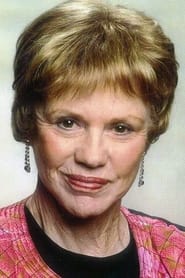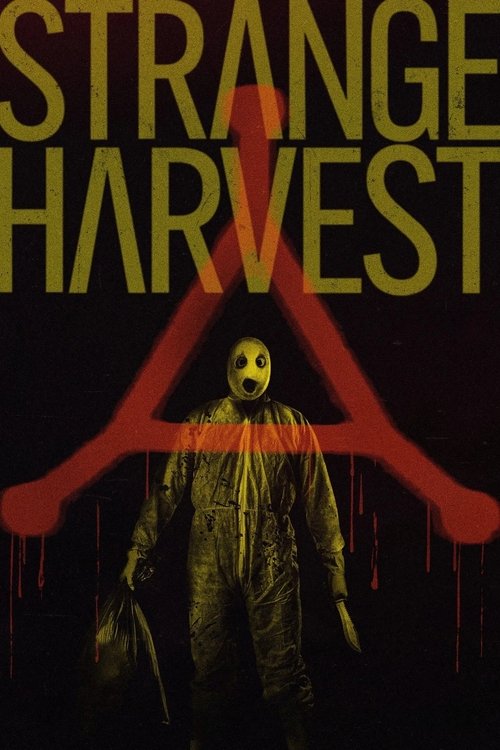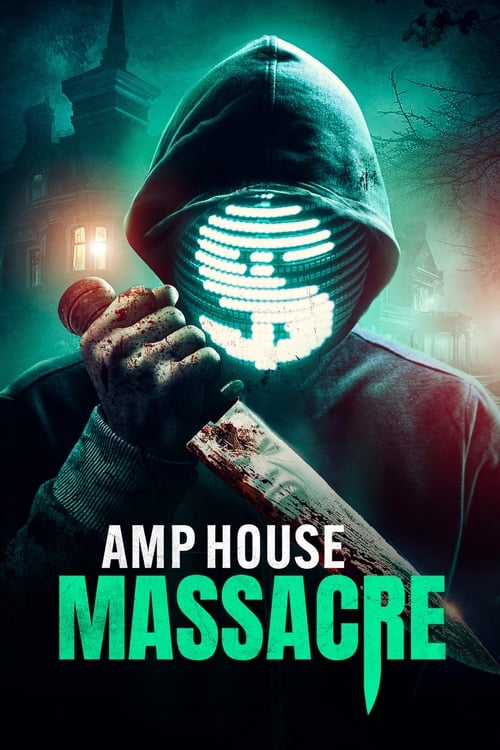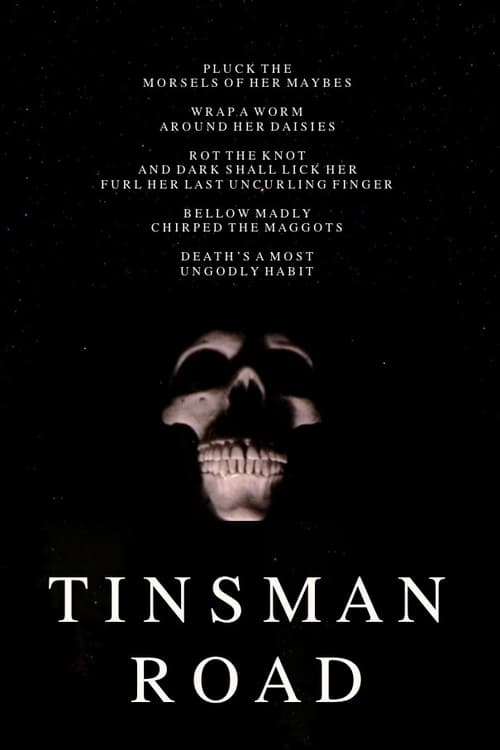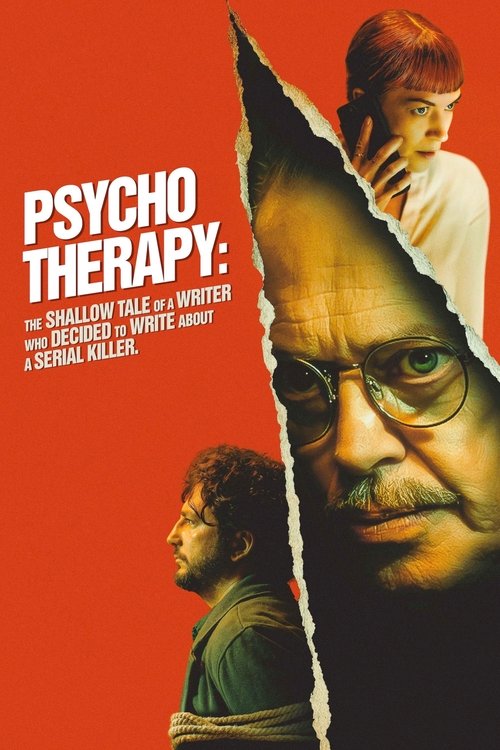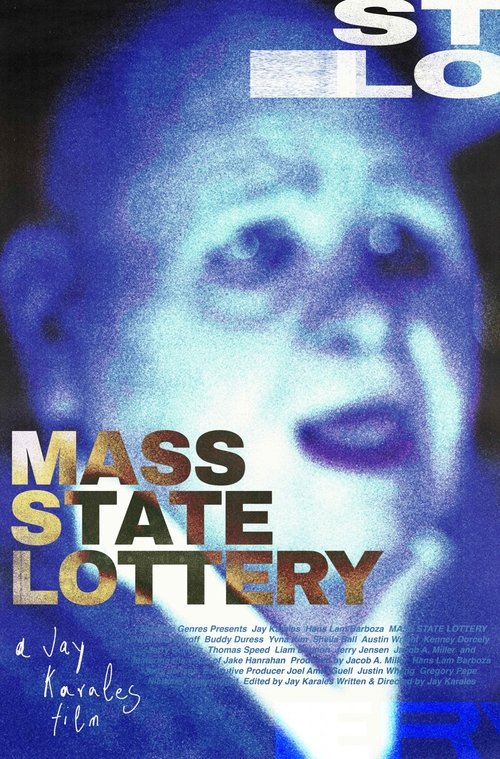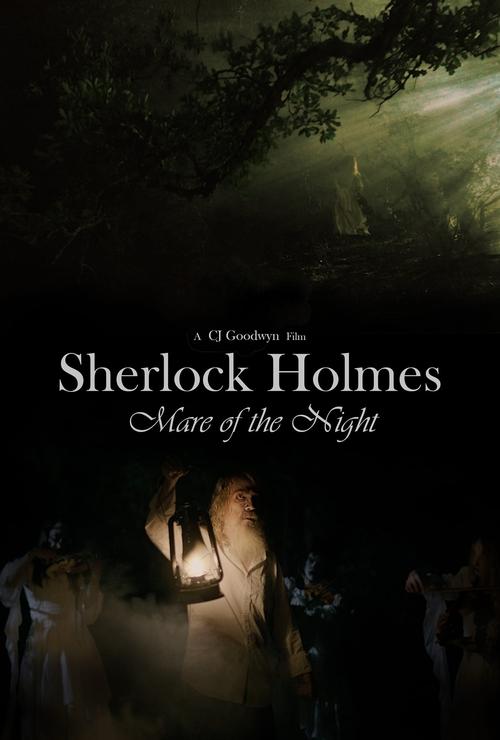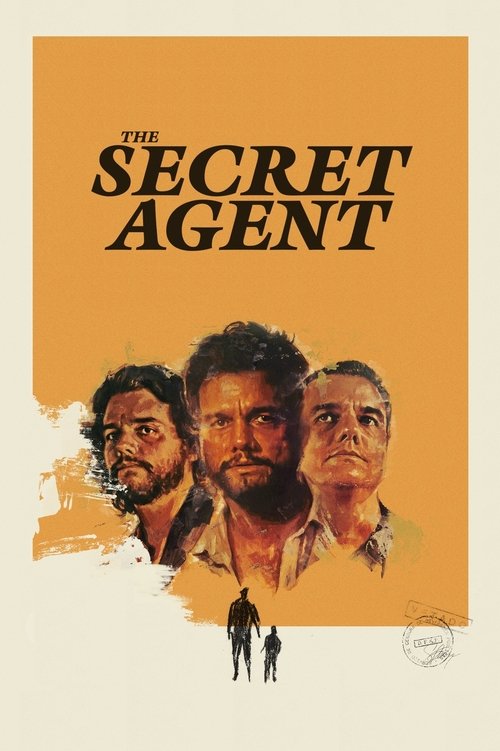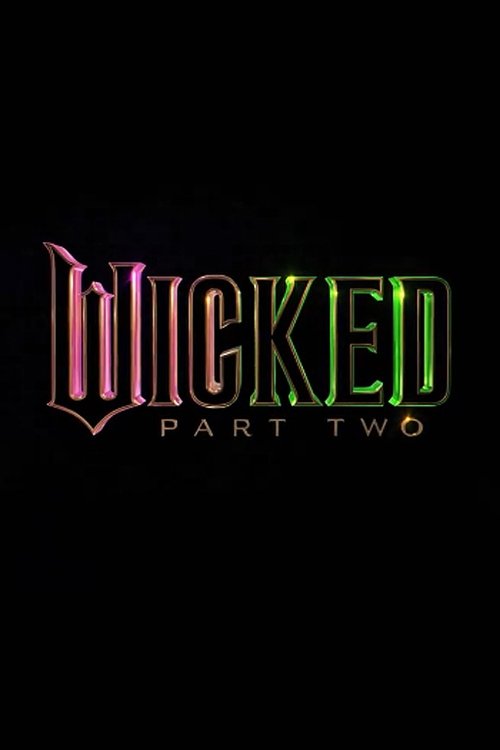
Ask Your Own Question
What is the plot?
Caitlyn Morales is a successful family-law attorney who is pregnant with her second child when her firm assigns her to represent a young woman named Polly Murphy in a landlord dispute. Caitlyn meets Polly at a municipal legal clinic, takes her statement and visits the slum apartment where Polly is living. Shortly after that first interview, Caitlyn's labor begins. She delivers her newborn daughter, whom she and her husband Miguel name Josie, at home with medical assistance nearby. The new baby complicates an already difficult household routine: Caitlyn must care for Josie while also managing the demands of her elder daughter, Emma, who resents sharing her parents' attention. Miguel tries to keep the household steady, but Caitlyn quickly feels overwhelmed.
A few weeks after the birth, Caitlyn and Polly cross paths again at a grocery store. Polly, still without stable housing, says she wants to help Caitlyn and asks for paid work as a nanny. Desperate for reliable child care and impressed by Polly's apparent rapport with children, Caitlyn hires her for occasional shifts. Polly's manner with Emma and Josie wins Miguel's approval; she plays with Emma's basketball practice drills and sings to Josie. After a few shifts Polly suggests she move into the guesthouse behind the Morales home to provide more consistent help. Caitlyn hesitates but gives permission, and Polly settles into the outbuilding.
Several nights after moving in, Polly prepares a seafood cioppino for dinner. She surreptitiously slips a sedative into Caitlyn's portion and into Emma's and Miguel's servings as well, causing all three to become violently ill with food poisoning overnight. Josie is spared because a nurse friend stops by with formula and finds Caitlyn sick; the family never suspects foul play. Polly uses the incident to ingratiate herself further, taking over kitchen tasks and altering the children's diets to include treats Caitlyn forbids. She quietly flouts Caitlyn's rules: she allows Emma to have sugary sodas after school, gives Josie slightly different homemade baby food without Caitlyn's permission, and introduces Emma to small fireworks she claims are safer than store-bought sparklers.
Caitlyn manages a professional life while struggling with insomnia and mood swings. She is taking prescribed medication for a mental-health condition, pills that she keeps in a bottle on her nightstand. Polly observes the bottle and, over the following weeks, begins to replace Caitlyn's prescription with methamphetamine tablets that she has shaved and reformed to match the pills' appearance. Polly swaps pills while Caitlyn sleeps and while the house is busy. The substituted stimulants produce marked changes in Caitlyn's behavior: she becomes more suspicious of Miguel, she snaps at Emma for minor infractions, and episodes of paranoia leave her lashing out at strangers. The meth also intensifies her jealousy when Emma begins to prefer Polly's company; Polly reads bedtime stories with an empathy Caitlyn cannot muster as she fights off exhaustion and drug-induced agitation.
One evening Emma sneaks a small box of fireworks Polly gave her into her bedroom and ignites them while showing Polly how they glitter. The fireworks set off a loud bang that startles Josie and leaves scorch marks on the bedroom curtains. When Caitlyn discovers the charred fabric and finds the little fireworks among Emma's toys, she explodes. The rage is sudden and disproportionate; she fires Polly on the spot, yelling that Polly is irresponsible and dangerous. Miguel argues that Emma's use of the fireworks was an accident and pleads for restraint, but Caitlyn is adamant. Hurt and embarrassed, Polly packs her bags and announces she will leave the property that night.
After several sleepless nights haunted by the possibility that Emma will see Polly and choose to live with someone else, Caitlyn drives to a nearby run-down motel where she believes Polly has taken refuge. She asks Polly to return, telling her she made a mistake in letting emotion dictate her decisions. Polly accepts the rehire without condition. Back at home, Caitlyn still feels unsettled about Polly's past and asks her neighbor Stewart to run a discreet background check. Stewart, who owes favors to Caitlyn for legal advice she provided years earlier, agrees to look into Polly's history.
As Caitlyn pursues verification of Polly's references, she follows a lead to a woman who allegedly supplied a nanny reference for Polly. The woman tells Caitlyn that she had only met Polly at an AA meeting and had fabricated the employment history out of pity. Caitlyn grows alarmed and brings this information to Stewart, who expands the search. Stewart discovers that Polly's birth name is Rebecca and that both "Rebecca" and Caitlyn once lived in San Bernardino. His records show a devastating house fire in San Bernardino years earlier that destroyed Rebecca's family home and killed her parents and her infant sister. Stewart learns that the fire was started by a young resident of the neighborhood, that the girl was given a fresh identity and moved away with the help of a social-services intervention, and that Rebecca was placed into a sequence of abusive foster homes. Stewart compiles his report with photographs and old court papers. He does not immediately tell Caitlyn the full contents of what he has uncovered.
Stewart arranges to meet with Polly at a diner to share what he found. He tells her that Caitlyn--whose birth name was Jennifer--left San Bernardino after setting the fire that consumed Rebecca's home. He explains that social workers placed Jennifer in a witness protection–style arrangement that allowed her to assume a new name and a new life while Rebecca, uprooted and traumatized, was shuffled between foster families. Stewart asks Polly to consider forgiving Caitlyn because Caitlyn, in his account, has a complicated history and lived a life of its own since the incident. Polly listens, then suddenly lashes out. She follows Stewart back to his car, produces a baseball bat she has concealed, and savagely beats him until he collapses bloody and barely conscious. She steals Stewart's laptop and the printed reports he carried, then disappears into the night.
Stewart's wife returns home to find him battered on the driveway. She calls Caitlyn in a panic. Caitlyn drops everything and speeds back to her house. When she arrives she finds Polly sitting at the family table wearing one of Caitlyn's blouses and with her hair pinned back in a French twist that mimics Caitlyn's usual style. Miguel is serving dinner and the children are eating as if nothing had happened. Polly cradles Josie protectively in her arms. The sight triggers a frayed nerve in Caitlyn. She walks into Polly's rented guest room and begins to tear it apart--riffling through folded clothes, overturning drawers, flinging Polly's things across the floor in an uncontrolled rage.
Polly comes downstairs and sits in the doorway of the dining area, still holding Josie. Caitlyn screams and lunges at her, attempting to throttle her. Emma rushes forward to pull her mother off, and in the struggle Caitlyn's hand slams into Emma's face, leaving a red welt. Miguel snaps; he grabs Caitlyn by the shoulders and pushes her out of the house. He calls the police and files domestic-violence charges. The responding officers serve Caitlyn with emergency protections that bar her from unsupervised contact with her children pending a hearing. Caitlyn, humiliated and arrested on the scene for the assault on Emma, is escorted off the property.
Caitlyn refuses to accept the court restriction. On the next Saturday she arrives at Emma's basketball game without warning. She stands in the gym doorway and pleads with Miguel and the coaches to let her speak to Emma for a minute. Emma hesitates, then walks to her mother and takes her hand. She tells Caitlyn that she believes her and that she wants to help her find the truth. Emma reveals she has been rooting through Polly's things since the argument and gives Caitlyn a small envelope she found taped to the underside of Polly's dresser. Inside are copies of Stewart's compiled background check and a dog-eared photograph of a burned house in San Bernardino, along with a faded school portrait of a little girl identified as Rebecca. The images unlock something in Caitlyn's memory: a smell of smoke, the echo of a child's cry, and a face she has not seen in two decades.
Shaken, Caitlyn drives home directly from the gym. On the way she flashes back to her adolescence in San Bernardino and acknowledges who she was before she became Caitlyn Morales: Jennifer, a frightened girl who started a fire in the house of her stepfather--the man who had been abusing her and his own daughter. Caitlyn recognizes the ash-blurred silhouette of the house in the photograph and realizes the terrible consequence of her own escape--that those flames destroyed Rebecca's family and killed the infant sister Rebecca used to cradle. The new identity Caitlyn was offered years ago had severed her from the past; it had not erased the damage.
When Caitlyn arrives at her house, Polly is standing in the kitchen wearing Caitlyn's clothes, her hair caught up in the same French twist. Polly appears calm, almost content, as she watches Emma set the table. Caitlyn acts first: she sits across from Polly at the island and begins to speak in a voice that trembles between apology and explanation. Caitlyn tells Polly that she is sorry and then tells the truth about San Bernardino: she confesses that she set the fire to escape an abusive household where both she and the other girl suffered. Caitlyn says she thought leaving would save them both, and she says she did not mean for anyone to die. Polly listens and then recounts her own losses--the foster homes that taught her to be suspicious of adults who promised safety, the hunger, the nights she spent pretending there was a life she deserved. Polly allows Caitlyn's words to land but refuses to absolve her. She accuses Caitlyn of stealing her childhood; she says Caitlyn took everything Rebecca needed.
Caitlyn rises and moves to put her arms around Polly in a gesture meant to bridge the two women's fractured histories. Polly reacts violently. She grabs a glass from the counter, smashes it deliberately on the tile, and uses a shard to plunge into Caitlyn's abdomen. The knife-edge punctures Caitlyn's flesh and she doubles over, gasping, blood soaking the front of her blouse. Polly's face is hard as she tells Caitlyn, with cold clarity, that she intends to take Caitlyn's life as she has taken everything else: she plans to supplant Caitlyn, to become the mother to Emma and Josie, to live the life Rebecca never had. Polly speaks in a voice that betrays both obsession and entitlement.
A pitched, brutal fight erupts in the kitchen. The two women grapple among overturned chairs and shattered glass. Caitlyn, weakened from blood loss and the meth's aftereffects, struggles to control her limbs, but she finds a reserve of adrenaline. She grabs Polly, and in a moment of desperation heaves her backward through the large plate-glass window that faces the back yard. The window explodes outward; Polly sails through the air amid splinters of glass and lands on the patio below with a cry. Caitlyn, bleeding and frantic, staggers to her car in the driveway, scoops the still-crying Josie into her arms, and floors the accelerator.
Polly scrambles to her feet and runs to the car as Caitlyn wheeled onto the street. She slams her hands against the passenger side window and scratches at the glass. Polly grabs the hood and pulls herself forward, reaching toward Josie's seat. In her mania she claws at the rearview mirror and bangs on the windshield, forcing Caitlyn to swerve to avoid losing control. As Caitlyn jerks the steering wheel to correct the car, she drives into the lane of an oncoming vehicle that is too close to avoid. The two cars collide in a thunderous impact. Caitlyn's airbags deploy; she and Josie are knocked senseless by the force but remain momentarily conscious.
Polly is flung bodily from the vehicle's side at the moment of impact. She flies across the pavement and into the air, striking the curb and tumbling end over end. She comes to rest several yards away, her body broken and bleeding. Bystanders run from the sidewalk to the crash scene. Miguel, who had been walking Emma home from practice, sees the accident from the street and sprints toward the wreck. He had watched the argument unfold from a distance and now watches the aftermath with horror. He calls out to Caitlyn as first responders arrive. Miguel kneels by Polly's motionless form and, in a sudden admission of culpability for not believing Caitlyn earlier, apologizes aloud to her in front of the paramedics. Caitlyn, reeling and cradling a limp Josie, crawls out of the crumpled car and staggers toward Polly's collapsed body. She crouches beside her and holds her hand while crackling radios and shouted instructions fill the air.
Emergency medical technicians perform triage. They lift Polly onto a backboard and rush her to an ambulance, but her injuries are catastrophic: multiple fractures, internal hemorrhaging and a severe traumatic brain injury from the fall and impact with the curb. En route to the hospital, Polly's pulse falters; the medical team administers resuscitation, but Polly's condition deteriorates. At the hospital, the surgeons work for hours. Caitlyn insists on being allowed into the ER waiting area despite the pending legal ramifications and the protective orders against her; she clutches a blood-stained hand towel over the wound in her abdomen and waits. Miguel remains at the scene long enough to speak with officers and paramedics, then drives to the hospital to be with his family. Stewart, who had been treated for his beating and released with stitches and a concussion, appears in the hospital corridor and watches through glass doors as medical staff wheel Polly's stretcher into surgery.
Polly dies on the operating table from the extent of her injuries. The official cause is blunt-force trauma and hemorrhage sustained when she was propelled from the vehicle during the collision. Officers file an incident report that records Caitlyn's stabbing wound and the prior assault on Stewart. The domestic-violence case takes on new dimensions; investigators must reconcile Caitlyn's previous assault on Emma, Polly's prior assault on Stewart and the fatal injuries Polly suffered. Whether charges proceed against Caitlyn is a matter for the coroner and the district attorney's office as paramedics continue resuscitation efforts and prosecutors review the sequence of violent acts.
After the hospital transfer, Caitlyn sits for hours in a waiting room, bandaged and exhausted. She feels both grief and a stoic acceptance as she listens to the whispered updates and the wails of the family across the hall. In the days following, officials consider the events that led to Polly's death: Caitlyn's earlier arson in San Bernardino that destroyed Rebecca's home and killed Rebecca's infant sister and parents; Polly's beating of Stewart that left him near death; and the night's collision that propelled Polly into fatal trauma. Scott files for emergency custody modifications to protect Emma and Josie during the pending investigations. Miguel apologizes to Caitlyn at the hospital for the weeks he doubted her, and the two exchange a strained reconciliation as they prepare to tell Emma about the hospital's final determination.
Caitlyn visits the burn-pit memorial she remembers from San Bernardino in a private recollection and acknowledges, in strict factual terms to those around her, that years earlier she had lit the blaze to escape sexual abuse. Social-services records show that she was provided a new identity--Jennifer became Caitlyn Morales as a minor assisted by child-welfare services--and she received counseling and placement in a new community. Those records also show Rebecca's trajectory after the fire: removed from her home and placed in foster care, suffering neglect and physical abuse in some placements, and eventually arriving in the city where she will later present herself as Polly Murphy. Stewart's report, entered as evidence in later legal proceedings, documents these transitions.
Polly's funeral is unceremonious and attended by only a few transient acquaintances. The police report lists Rebecca Murphy (aka Polly Murphy) as deceased from injuries in the collision. Meanwhile the coroner's inquest records that the initial house fire in San Bernardino had been set by a juvenile--Jennifer--whose identity was later changed by protective placement. The juxtaposition of crimes--Jennifer's arson years earlier and the violent acts that surround Polly's death--creates a complex evidentiary trail that authorities log and weigh in their inquiries.
In the film's final scenes, Caitlyn sits alone at night in the family living room in front of the fireplace. She watches the flames burn and holds a folded photograph of the burned house from Stewart's files. Emma sits beside her and, with a child's uncanny mimicry, repeats the cadence of stories Polly used to tell to calm Josie. Emma imitates Polly's gestures and the soft, precise way Polly had recounted life in foster care to soothe the baby. Josie fusses in her infant carrier and quiets when Emma's voice softens, repeating a line Polly once told her about the cold nights in a shelter. Caitlyn hears the words and does not move. She looks into the fire as the camera lingers on her face and on the two daughters: one the child she raised, the other the child whose presence once triggered an unraveling of two women's pasts. The final image is of Caitlyn holding herself steady while Emma rocks Josie and recites the foster-home story with Polly's cadence, the three of them bound by the aftermath of the night's violence and by the consequences of choices made years earlier. The scene closes on Caitlyn's steady stare into the flames as the house settles into an uneasy silence.
More Movies Like This
Browse All Movies →What is the ending?
Short Narrative Ending: The movie "No Tears in Hell" concludes with Alex's downfall as his actions become increasingly reckless and sloppy. His mother, who has been complicit in his crimes, begins to realize the inevitability of their situation. The film ends with a sense of impending doom for the duo, as their dark secrets are on the verge of being exposed.
Expanded Narrative Ending:
The ending of "No Tears in Hell" unfolds in a series of intense and disturbing scenes. As Alex's behavior becomes more erratic, his mother starts to notice the risks he is taking. She warns him about his sloppiness, but Alex is too consumed by his desires to listen.
One of the pivotal moments occurs when Alex encounters Vicky and Trish, two women who are not typical homeless targets. They have families and people who will look for them, which makes Alex's usual modus operandi more dangerous. Despite this, Alex continues his actions, leading to a series of gruesome and prolonged torture sessions.
As the police begin to take notice of the disappearances, albeit slowly due to the lack of detailed information, Alex's mother realizes that their situation is unsustainable. She understands that it is only a matter of time before they are caught.
The film's climax shows Alex's complete descent into madness, with his actions becoming more brutal and less calculated. His mother, while still supportive, starts to see the end of their twisted game. The movie concludes with a sense of foreboding, as the audience is left to infer that Alex and his mother will soon face justice for their heinous crimes.
Throughout the ending, the film highlights the themes of depravity, the consequences of unchecked desires, and the destructive nature of a mother's unconditional support. The fate of Alex and his mother is left somewhat open-ended, but it is clear that their dark world is about to collapse around them.
In terms of specific character fates, Alex's recklessness leads him toward a path of self-destruction, while his mother's complicity in his crimes ensures that she will also face consequences. The exact outcome is not explicitly shown, but the implication is that they will be caught and punished for their atrocities.
Is there a post-credit scene?
Based on currently available information from reputable film databases, reviews, and official sources, there is no evidence that the 2025 film No Tears in Hell contains a post-credits scene. The film, directed by Michael Caissie and starring Luke Baines and Gwen Van Dam, is a true-crime horror loosely inspired by the real-life case of Russian serial killer Alexander Spesivtsev and his mother, focusing on their disturbing crimes and the psychological dynamics between them.
Extensive plot summaries and reviews detail the main narrative, including the film's climax and resolution, but none mention any additional scenes after the credits roll. The story concludes with the exposure of the mother-son duo's crimes, the emotional fallout, and the chilling aftermath of their actions, but there is no indication of a post-credits sequence that provides further narrative, teases a sequel, or offers a final twist.
If a post-credits scene were present, it would likely be noted in major reviews or on film databases, especially given the film's genre and the common use of such scenes in contemporary cinema. However, as of now, no such scene has been documented or described in any available source material for No Tears in Hell (2025).
How does Alex initially select his victims in the movie No Tears in Hell?
Alex initially selects victims who are unlikely to be missed, often targeting homeless individuals. However, as the story progresses, he becomes more impatient and starts picking victims based on his personal preferences.
What role does Alex's mother play in his crimes?
Alex's mother is deeply involved in his crimes. She not only helps dispose of the bodies by throwing the remains into a local river but also participates in cannibalism with Alex. Her motivation is rooted in a twisted maternal instinct to protect and support her son.
How does Alex's behavior change throughout the film?
Initially, Alex is methodical and careful in his actions. However, as the story unfolds, he becomes increasingly sloppy and impatient. His crimes evolve from calculated kills to prolonged torture sessions, indicating a growing instability and lack of control.
What is the significance of the setting in No Tears in Hell?
The film is set in Alaska during the harsh winter, which provides a bleak and isolated backdrop for the story. This setting allows Alex to operate with relative impunity, as the harsh environment and societal neglect make it easier for him to target vulnerable individuals without arousing suspicion.
How does the relationship between Alex and his mother influence the narrative?
The relationship between Alex and his mother is central to the narrative. Her unwavering support and participation in his crimes enable Alex to continue his actions. However, as Alex becomes more reckless, his mother begins to notice the risks they are taking, highlighting the tension and complexity in their relationship.
Is this family friendly?
"No Tears in Hell" is not family-friendly due to its graphic and disturbing content. Here are some aspects that might be objectionable or upsetting for children or sensitive people:
- Graphic Violence: The film includes scenes of brutal violence, which are depicted realistically and can be deeply unsettling.
- Cannibalism: The movie touches on themes of cannibalism, which is a disturbing and taboo subject.
- Sexual Assault: There are references to sexual assault, adding to the overall disturbing nature of the film.
- Twisted Family Dynamics: The relationship between the mother and son is portrayed as twisted and enabling, which can be emotionally challenging to watch.
- Atmosphere and Setting: The film is set in a cold, isolating environment, which adds to the overall sense of dread and discomfort.
- Emotional Impact: The film's portrayal of real-life horror can evoke strong emotions, including fear, discomfort, and sadness.
Overall, "No Tears in Hell" is a film that deals with mature themes and is not suitable for children or those who are sensitive to graphic content.




